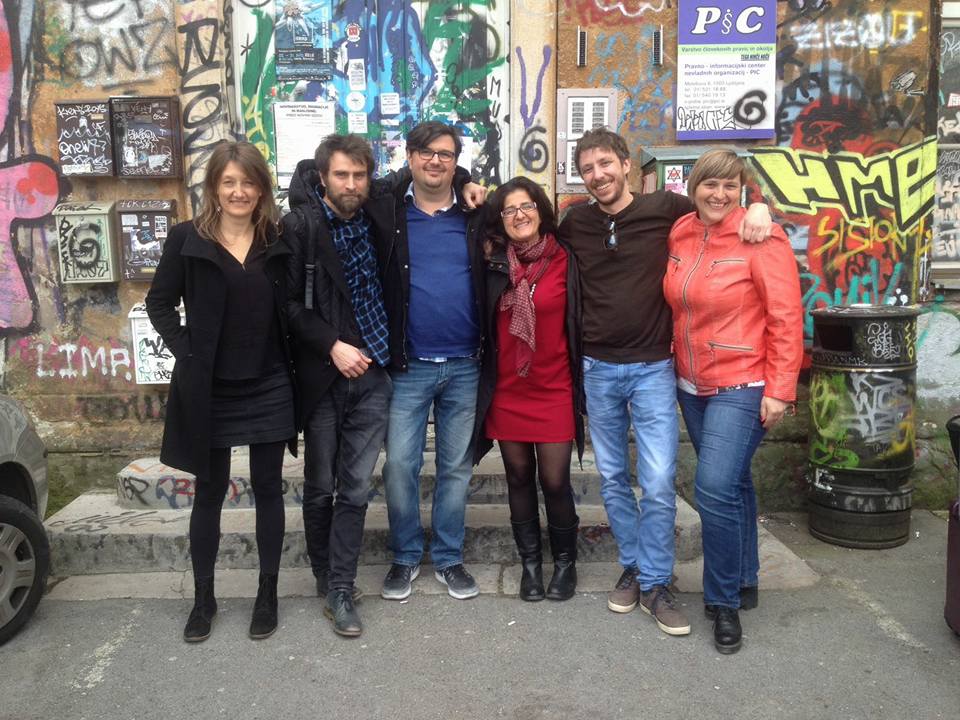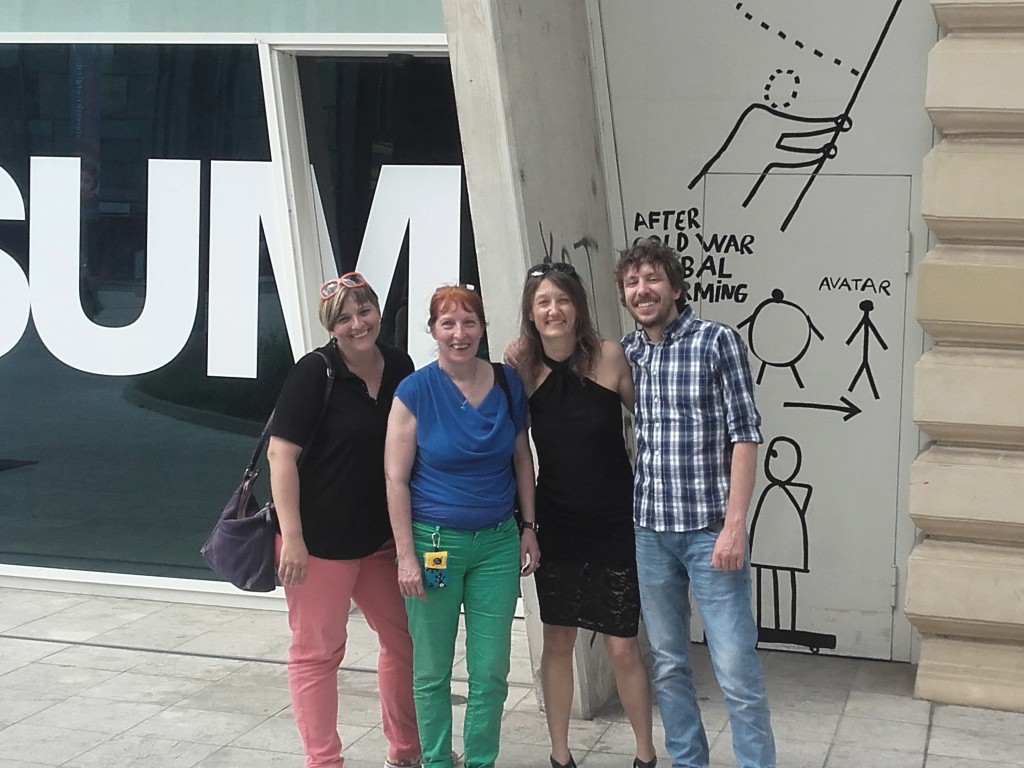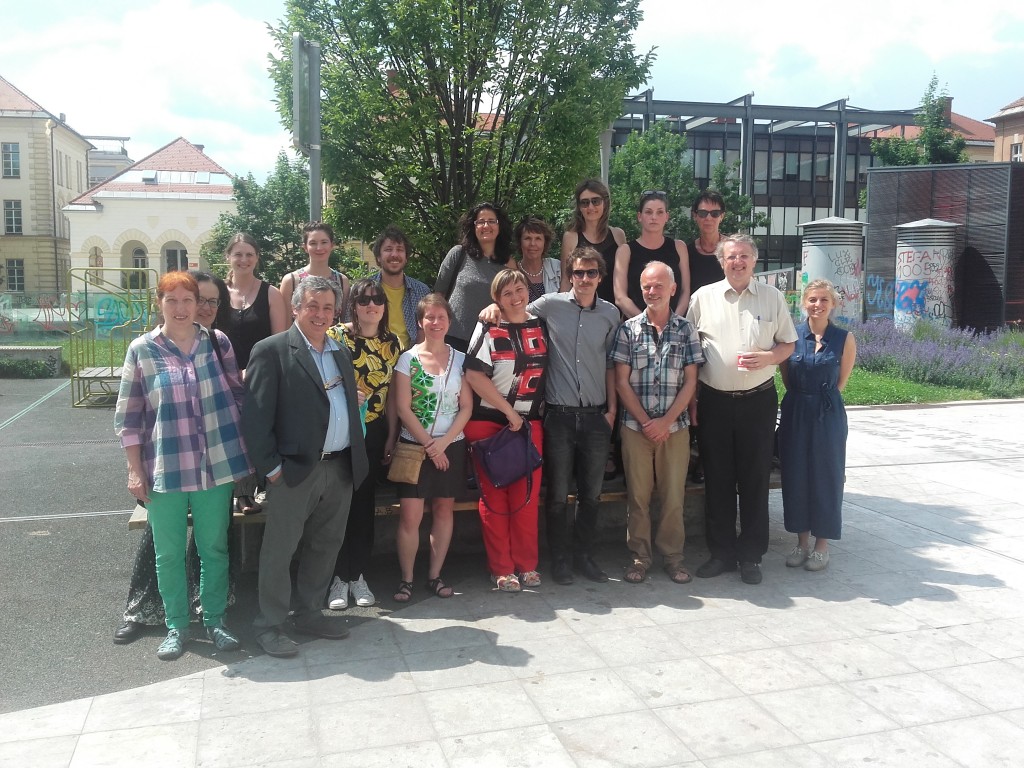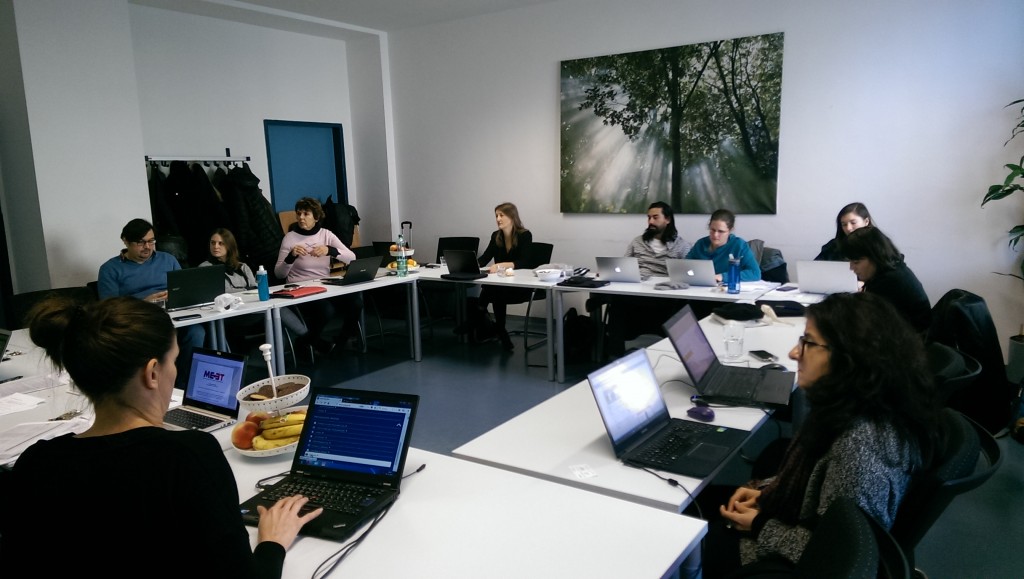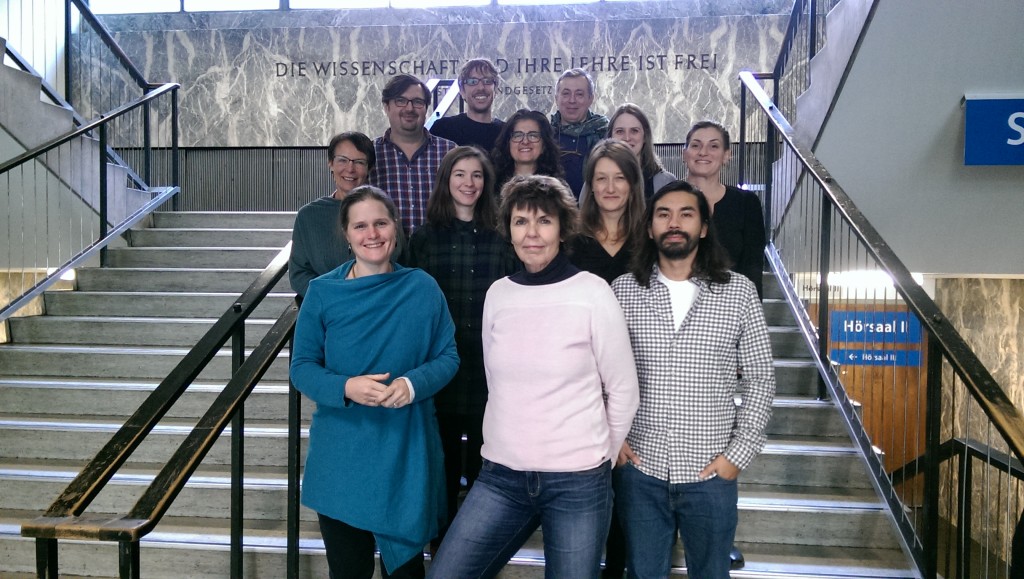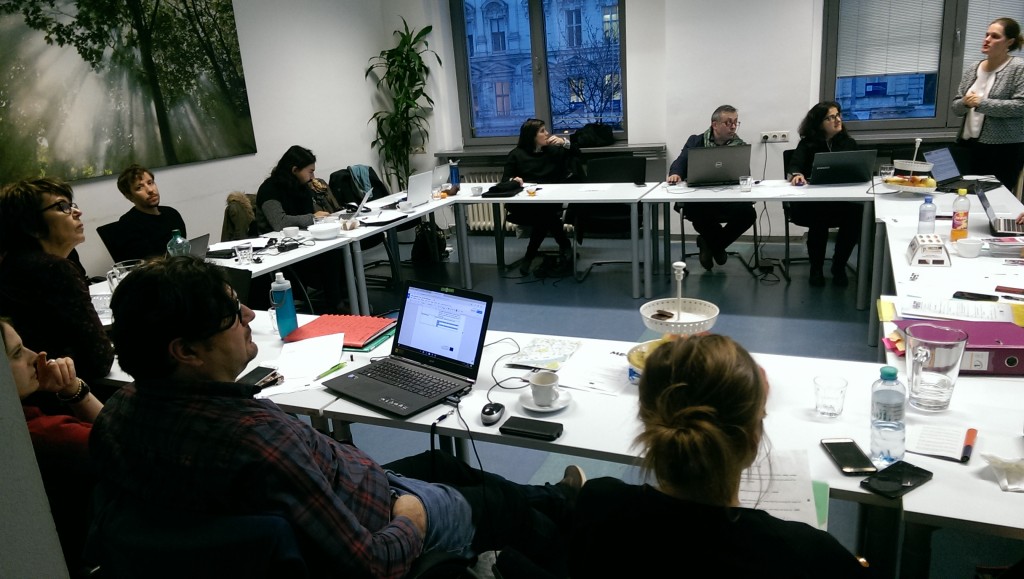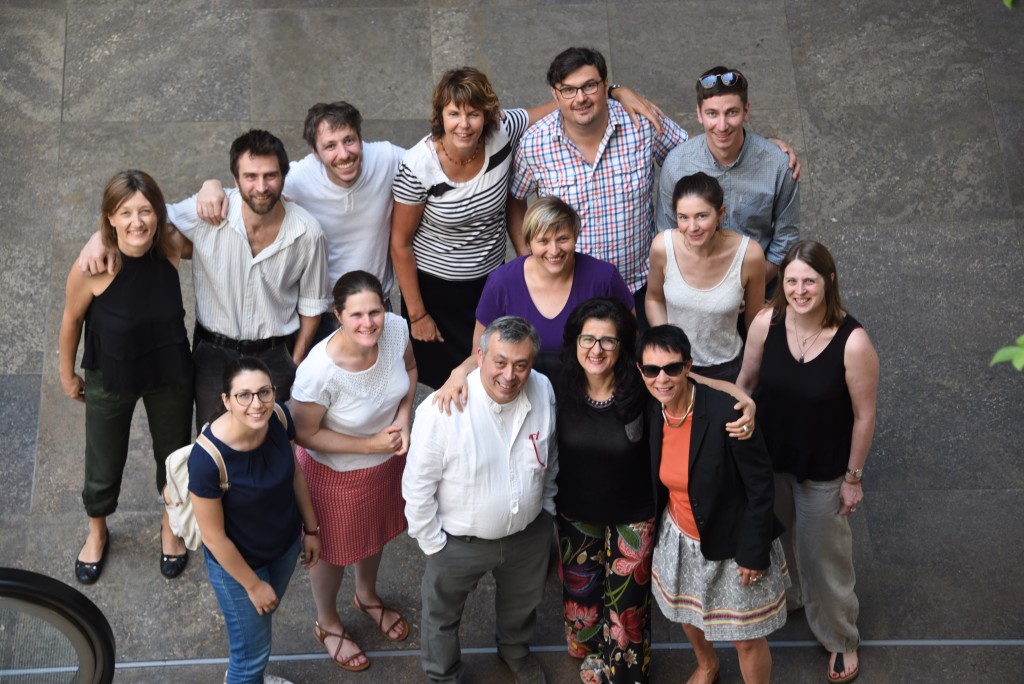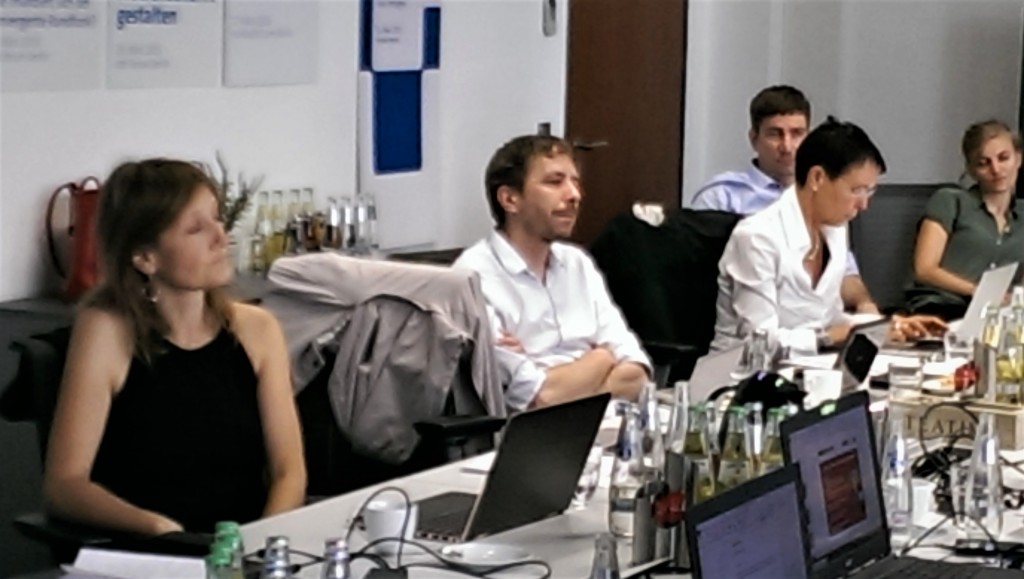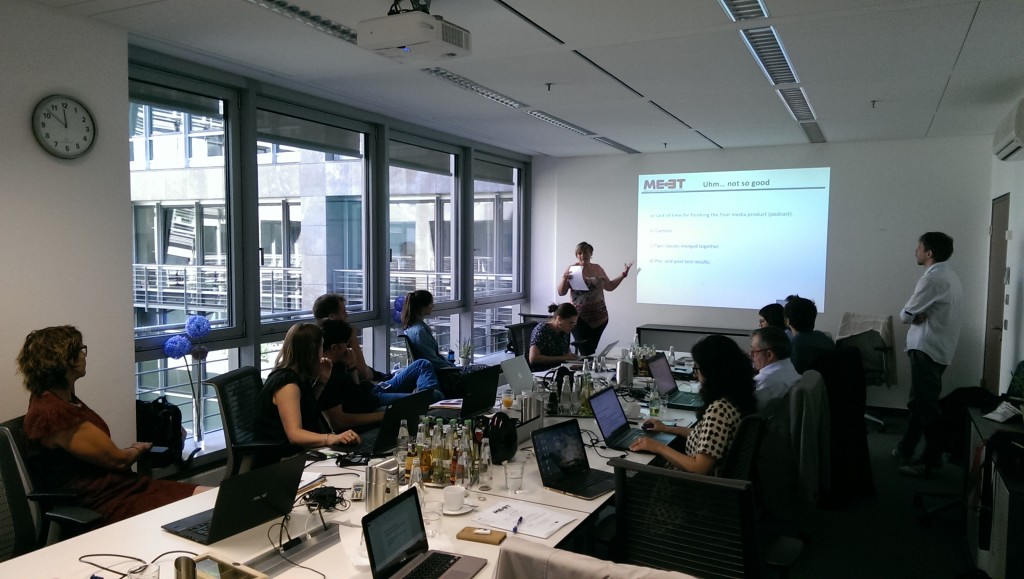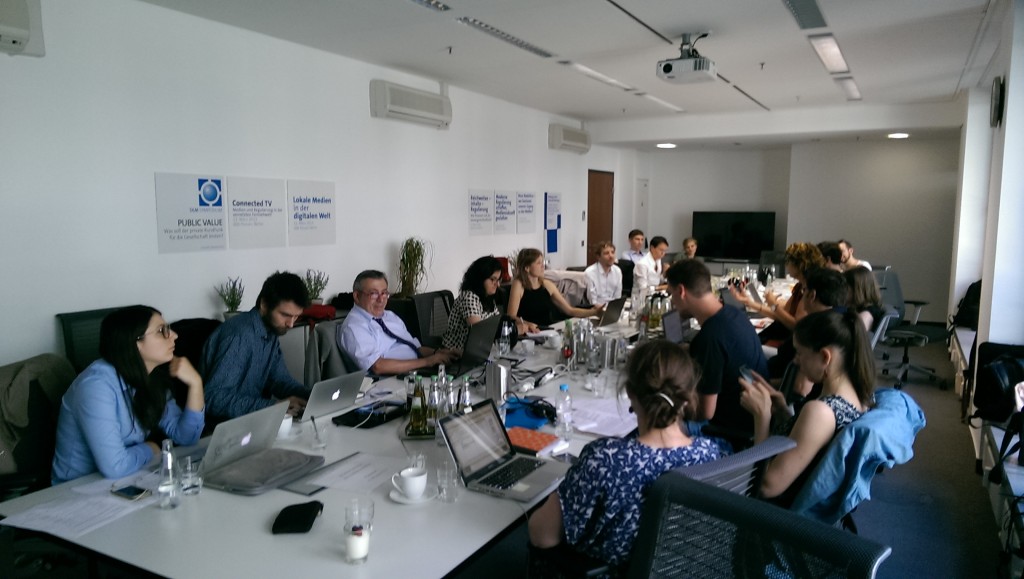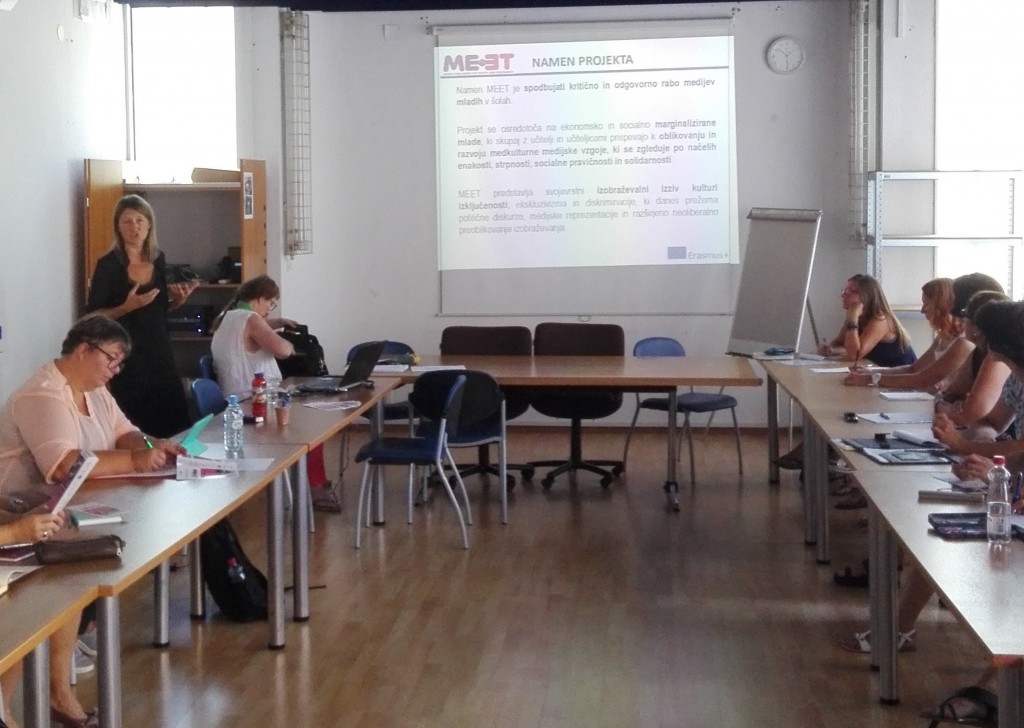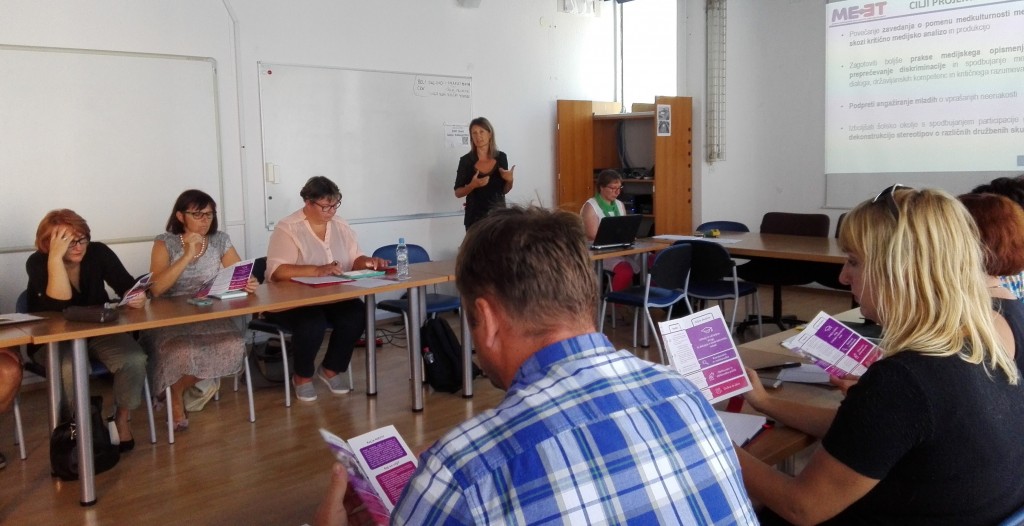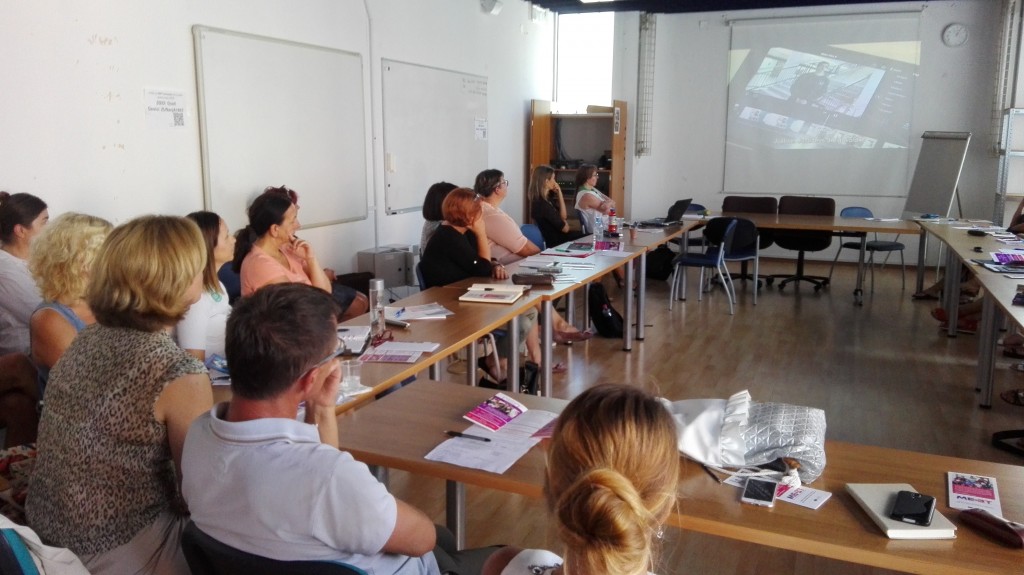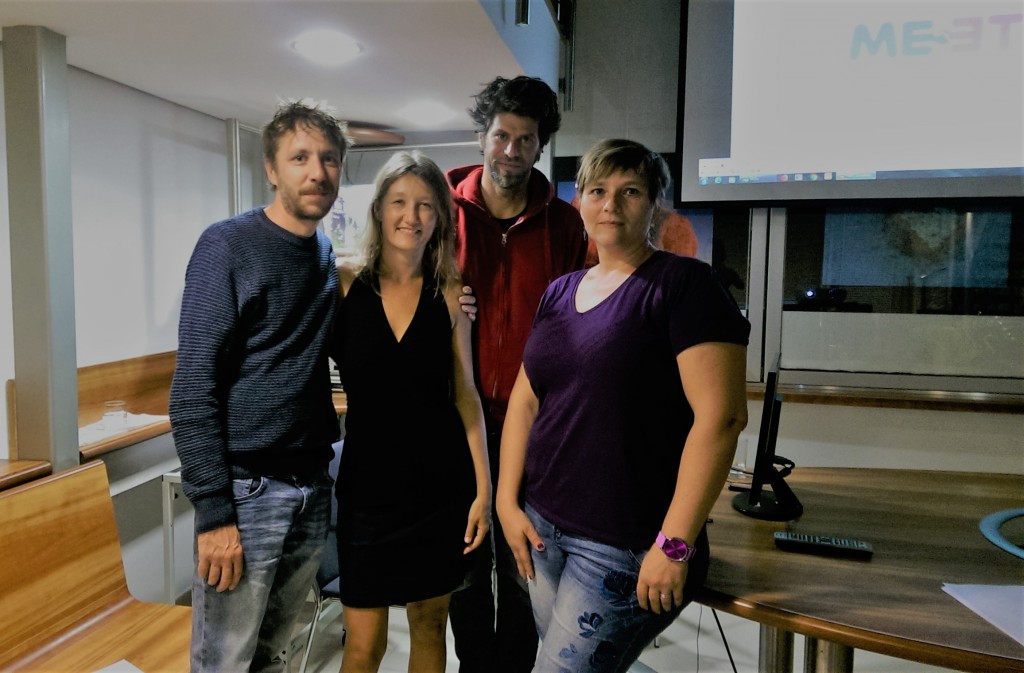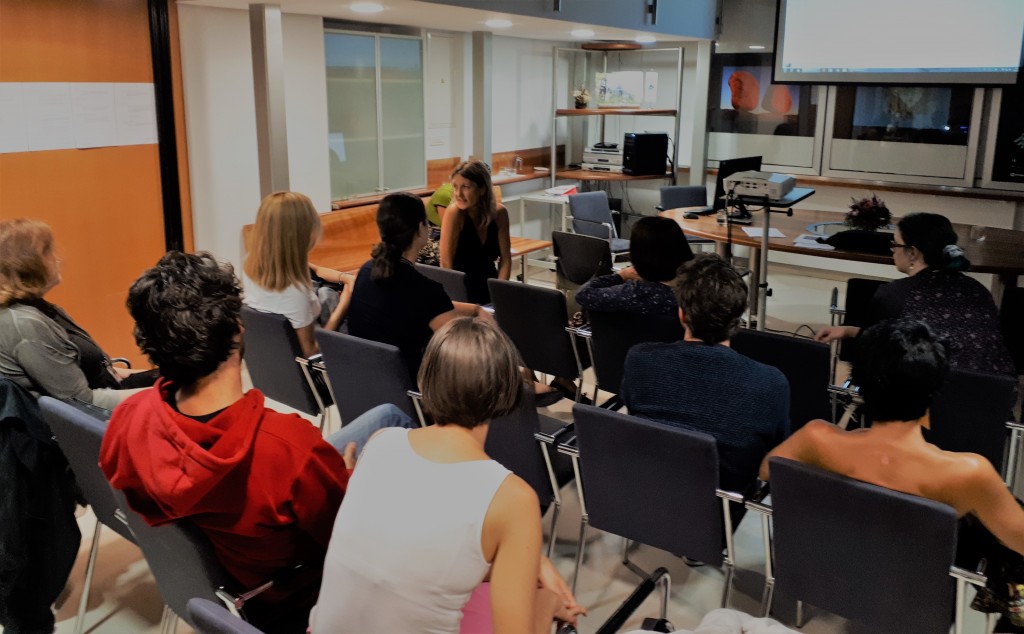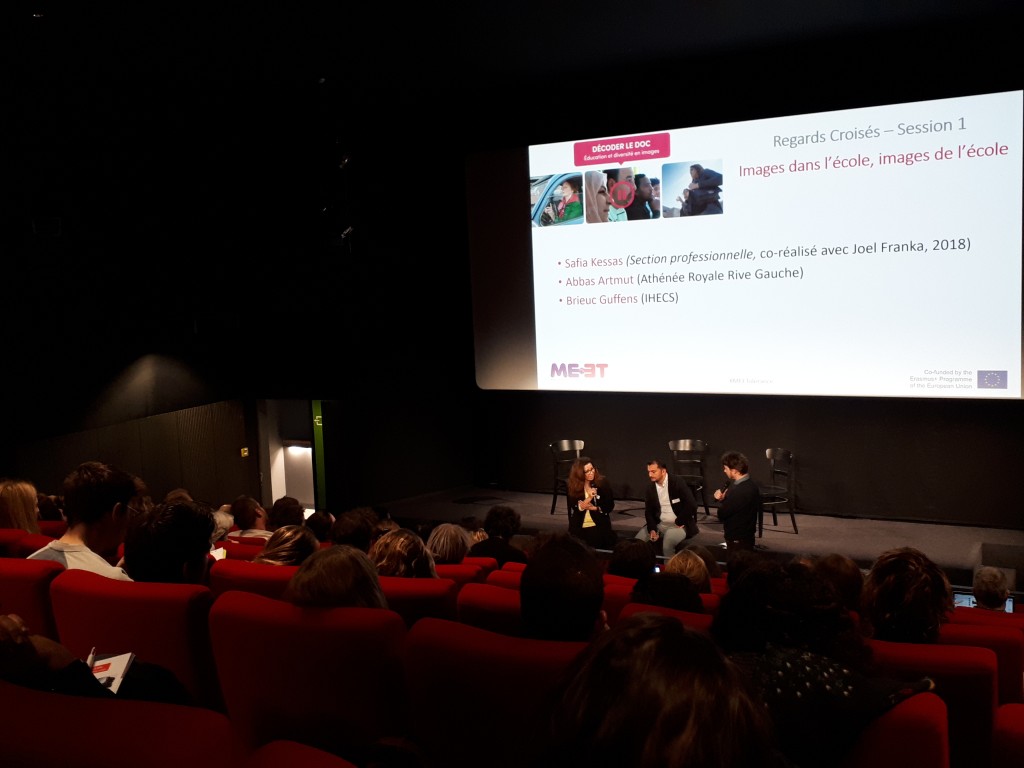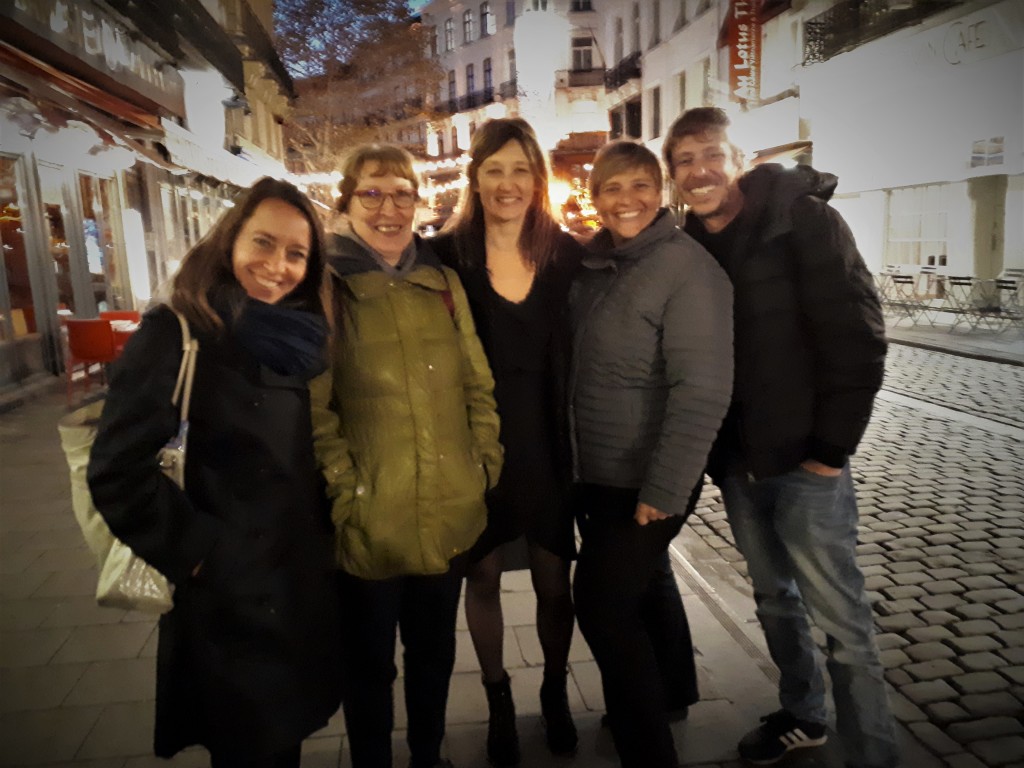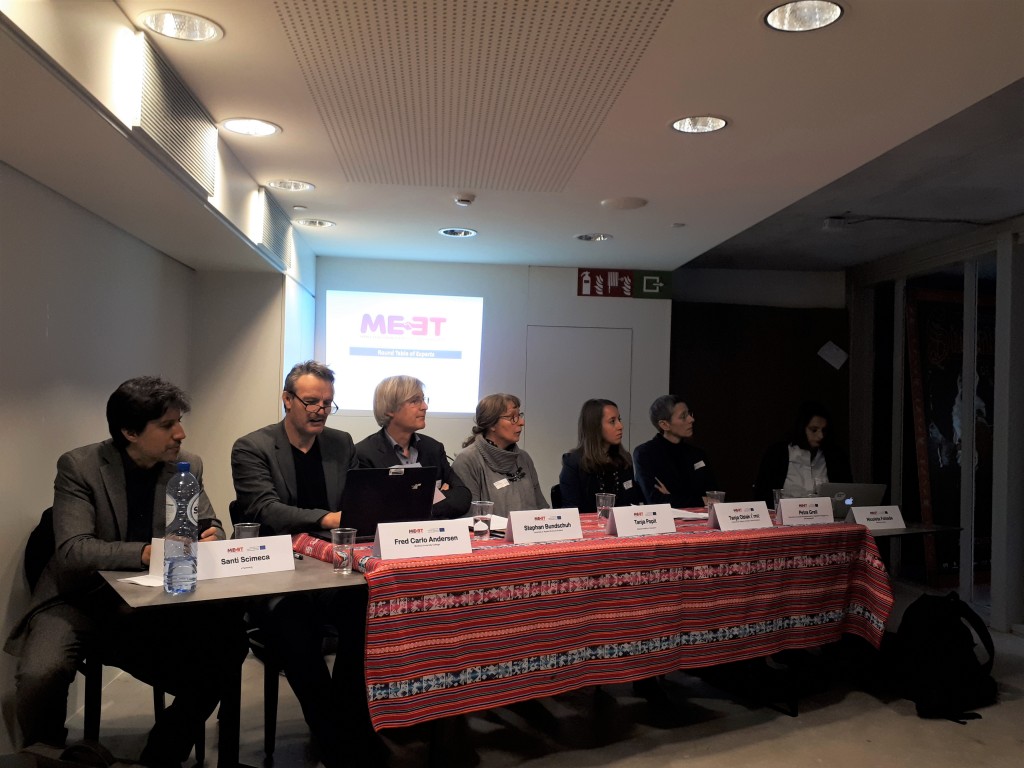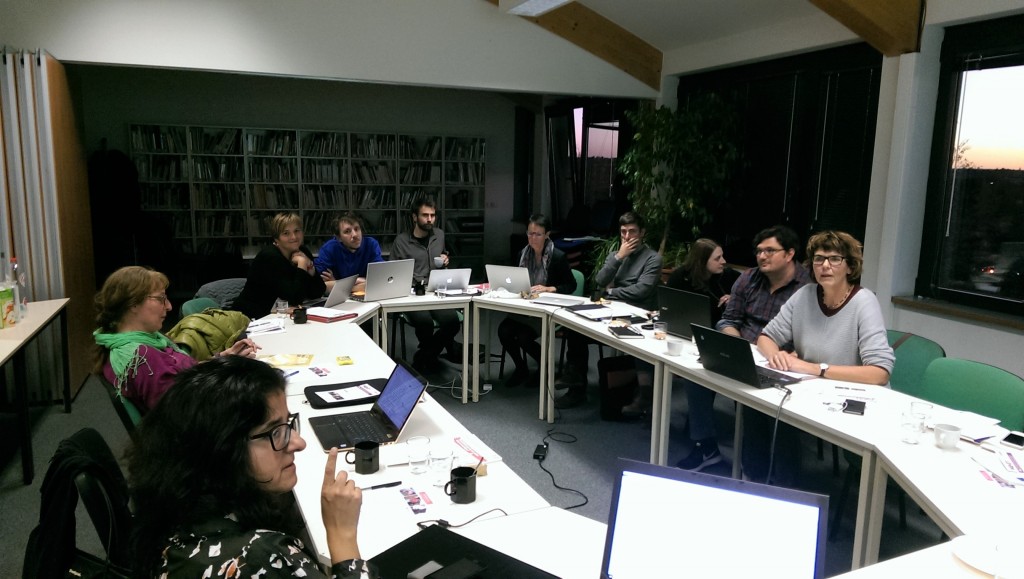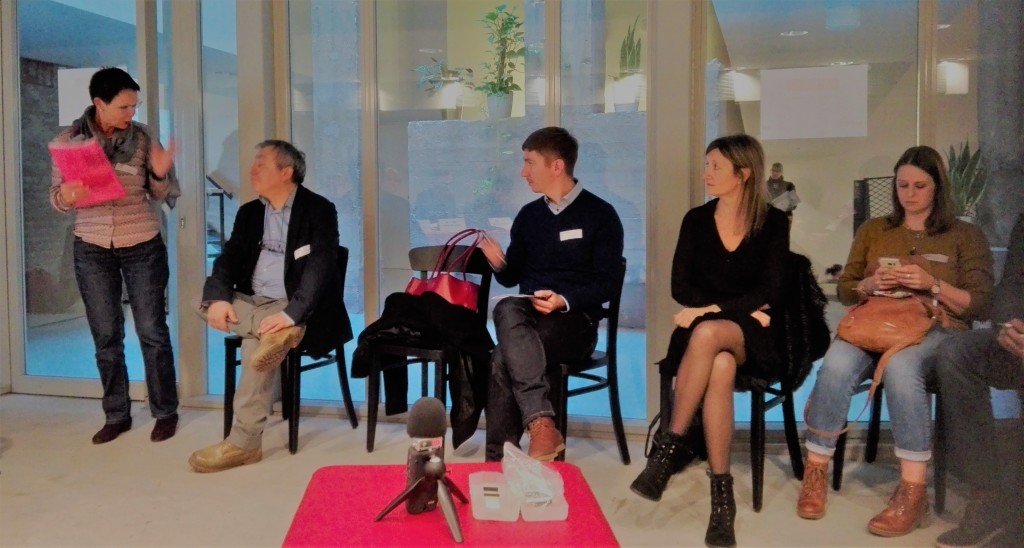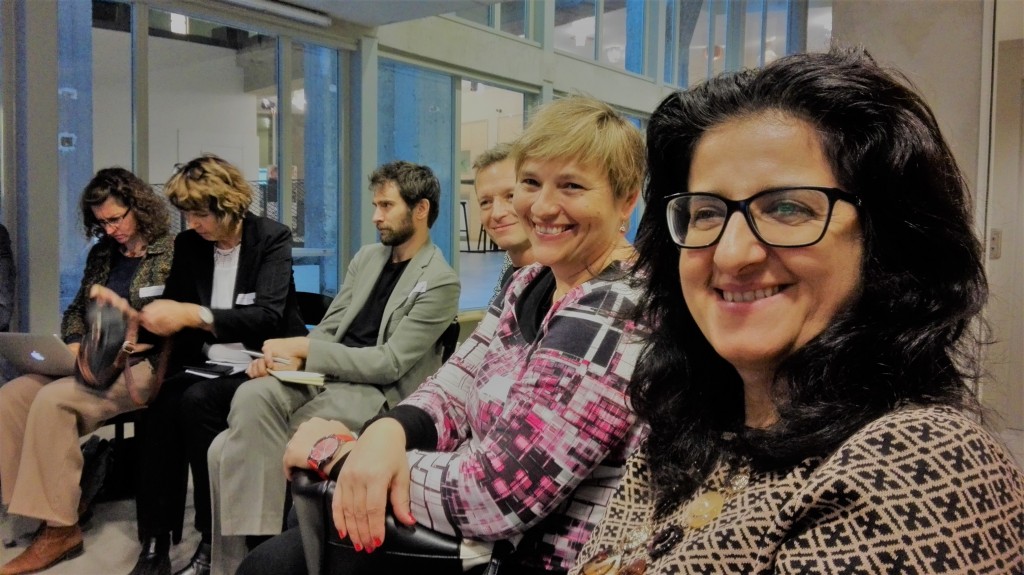MEET, Media Education for Equity and Tolerance
 MEET aims at promoting a critical and inter-cultural understanding as well as an aware use of media among young citizens in multicultural public schools in democratic societies. It mainly addresses economically and socially disadvantaged youth (aged 13-19), including migrants and refugees, by engaging them and their teachers in an action research process to co-design and develop inter-cultural media education practices inspired by principles of equity, tolerance, social justice and solidarity. In this respect, MEET can be seen as an educational (or pedagogical) challenge to a broader culture of exclusion, exclusivism and discrimination that nowadays seems to permeate many political discourses and media representations, as well as the widespread neo-liberal reconfiguration of educational provision. Finally, the project intends to advocate Media Education as a means to support social inclusion/justice among different sections of the public and through several dissemination tools, from the production of an educational documentary to the spreading of policy recommendations, digital toolkits and scientific papers on media and citizenship education.
MEET aims at promoting a critical and inter-cultural understanding as well as an aware use of media among young citizens in multicultural public schools in democratic societies. It mainly addresses economically and socially disadvantaged youth (aged 13-19), including migrants and refugees, by engaging them and their teachers in an action research process to co-design and develop inter-cultural media education practices inspired by principles of equity, tolerance, social justice and solidarity. In this respect, MEET can be seen as an educational (or pedagogical) challenge to a broader culture of exclusion, exclusivism and discrimination that nowadays seems to permeate many political discourses and media representations, as well as the widespread neo-liberal reconfiguration of educational provision. Finally, the project intends to advocate Media Education as a means to support social inclusion/justice among different sections of the public and through several dissemination tools, from the production of an educational documentary to the spreading of policy recommendations, digital toolkits and scientific papers on media and citizenship education.
Project execution
Main activities of the project are:
- Mapping of local, national and European policies on citizenship, media and inter-cultural education
- Selection and involvement of research participants in disadvantaged areas (about 150 students, 12 teachers and 6 cultural mediators)
- Adaptation and re/co-design of existing media education practices to address students at risk of social exclusion in inter-cultural contexts
- Production, testing and evaluation of 6 “learning scenarios” based on a critical literacy approach in three countries (Germany, Italy and Slovenia)
- Multimedia documentation of classroom activities aimed at producing an educational documentary on teaching and learning media literacy in inter-cultural contexts
- Delivery of MEET’s learning scenario as open educational resources available also after the end of the project
- Definition of guidelines for teachers on how to teach about media in inter-cultural contexts to support democratic citizenship and social inclusion
- Networking of local, national and international bodies dealing with education, media literacy and intercultural relations
- Advocacy of media education in school – as an inclusive and participatory educational practice – among teachers, policy makers and other relevant stakeholders
Results
Workshop
How to adapt media literacy activities to young people at risk of social exclusion?
In March 2017, the University of Florence (IT), the Peace Institute (SI) and Medien+Bildung.com (GE) gathered in Ljubljana to think on how to adapt the media literacy activities of the e-Engagement Against Violence (http://e-engagementagainstviolence.eu/index/) project to young people at risk of social exclusion. The discussions focused on equity, social justice, public schools, intercultural education and media literacy.
The teams of University of Florence (IT), the Peace Institute (SI) and Medien+Bildung.com
Meeting break at the Peace Institute
MEET schools
MEET Partners in cooperation with their respective Associated Partners at national level have identified six secondary public schools where the participatory action research will take place between May 2017 and June 2018. Researchers and teachers will co-design media education materials addressing young citizens at the Ernst-Reuter-Schule (Ludwigshafen, DE), BBS Technik 1 (Ludwigshafen, DE), Istituto Gramsci – Keynes (Prato, IT), Istituto Marconi (Prato, IT), Dvojezična srednja šola/Kétnyelvű Középiskola (Lendava, SL) and Srednja šola tehniških strok Šiška (Ljubljana, SL).
Meeting of the project consortium
The Peace Institute organized in Ljubljana in the period May 29-June 2, 2017 a meeting of the consortium of the project MEET – Media Education for Equity and Tolerance. The preliminary analysis of policies from the fields of citizenship, media and intercultural education has pointed to a shift in policies that at the declarative level address just and inclusive education but also show exclusivism and Eurocentrism, as a response to migration and terrorism. Further project activities will include, amongst other, application of educational modules for critical media literacy and culture of justice and equality in selected multicultural schools in three countries (Italy, Germany and Slovenia).
Meeting of the project consortium
The MEET project – Media Education for Equity and Tolerance meeting of the international consortium was held in Vienna in the period November 30-December 1, 2017. We shared experiences with pilot testing of educational modules for critical media literacy, culture of justice and equity that we are implementing in schools in three countries (Italy, Germany and Slovenia). In the coming months 150 pupils will test and evaluate 6 new learning scenarios in order to critically address discrimination and promote social inclusion in intercultural contexts. Other planned activities include, amongs other, the preparation of guidelines for teaching media education to support social inclusion, and a documentary film that supports and reflects educational practices based on action research.
Meeting of the project consortium
The meeting of the MEET project consortium was held in Berlin, June 7-8, 2018, where we exchanged experiences with the implementation of educational modules for intercultural media education. In secondary schools in three countries (Italy, Germany and Slovenia), 150 pupils tested learning scenarios that promote critical media literacy according to the principles of equality and social justice.
In Slovenia, the study was carried out at the bilingual secondary school / Kétnyelvű Középiskola in Lendava and at the secondary school of Technical Skills in Šiška in Ljubljana. Youngsters were educated in the field of multiculturalism, human rights and anti-discrimination, they recognized stereotypes in political discourses and media representations, and tried themselves out in media production – they critically approached culture of exclusion with radio podcast and shorter films.
Media Education to Address Culture of Fear
Presentation of MEET project results was organized by the Peace Institute and the National Education Institute Slovenia in Ljubljana, on the 20th of August 2018.
Mojca Pajnik from the Peace Institute introduced MEET project highlighting its educational challenges to culture of fear and exclusion. She discussed pedagogical novelties offered by MEET to stimulate students to learn about intercultural relations and use of new media to counteract discrimination. Field work in public schools in Germany, Italy and Slovenia was presented where MEET project partners, together with teachers tested learning scenarios as media education tools. Pajnik presented learning scenarios “Building a Diverse and Democratic Community” and “Migration between Media Narratives and Digital Storytelling” that were tested in classrooms in two public schools in Slovenia, Bilingual Secondary School Lendava and Secondary School of Technical Professions Šiška in Ljubljana.
Presentation of MEET was followed by screening of the pedagogical documentary, presenting video capsules on three MEET key concepts: understanding, expression and engagement. A lively debate followed, with MEET project team member Iztok Šori sharing his experience working with students in the Bilingual Secondary School Lendava while the teacher Andrej Svete emphasized positive impact of MEET pedagogical tools that have been applied in the Secondary School of Technical Professions Šiška in Ljubljana.
The event was attended by about 30 secondary school teachers from all over Slovenia who engaged in a lively debate about the relevance of MEET activities. They shared experiences with pedagogical techniques to critically address discrimination through media education.
Projection of documentary
Pedagogical documentary presenting video capsules on three MEET key concepts, understanding, expression and engagement was screened at the international multidisciplinary symposium Sounds of Minorities, on the 24th of August 2018 in Ljubljana. The screening was part of the festival organized by Imago Sloveniae. The documentary and the learning scenarios are freely available at https://meetolerance.eu/toolkit.
At the end of the project MEET – media education for equity and tolerance, Média Animation organized a conference in Brussels on November 15 to discuss strategies for promoting social equality in documentary video production. During the conference, an expert panel was held to evaluate the results of the project, where experts in the field of media and education highlighted the importance of education for critical media literacy and the culture of justice in schools.
The results of the project, including the educational modules that have been applied in schools in three countries (Italy, Germany and Slovenia), and the educational documentary on the implementation of the modules are available at:
https://meetolerance.eu/
Partners:
- University of Florence, Italy (coordinator)
- Medien-Bildung.com, Germany
- University of Vienna, Austria
- Media Animation, Belgium
- Associated partner in Slovenia: National Educational Institute Slovenia

